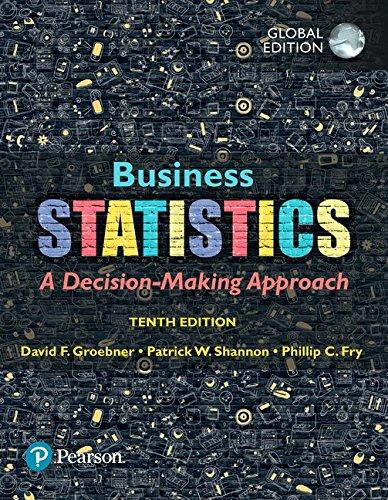Assume that a psychologist conducted a study to determine whether there are differences between the ability of
Question:
Assume that a psychologist conducted a study to determine whether there are differences between the ability of history majors and mathematics majors to solve various types of puzzles. Twenty-five mathematics majors and 25 history majors were randomly selected from the students at a liberal arts college in Maine. Five students from each major were randomly assigned one of the following puzzles: a crossword puzzle, a cryptogram, a logic problem, a maze, and a cross sums. The time in minutes (rounded to the nearest minute) was recorded for each student in the study. If a student could not complete a puzzle in the maximum time allowed, or completed a puzzle incorrectly, then a penalty of 10 minutes was added to his or her time. The results are shown in the file Puzzle.
a. Plot the mean time to complete a puzzle for each puzzle type by major. What conclusion would you reach about the interaction between major and puzzle type?
b. At the 0.05 level of significance, is there an interaction effect?
c. If interaction is present, conduct a one-way ANOVA to test whether the mean time to complete a puzzle for history majors depends on the type of puzzle.
Does the mean time to complete a puzzle for mathematics majors depend on the type of puzzle?
Conduct the one-way ANOVA tests at a level of significance of 0.05.
Step by Step Answer:

Business Statistics
ISBN: 9781292220383
10th Global Edition
Authors: David Groebner, Patrick Shannon, Phillip Fry





